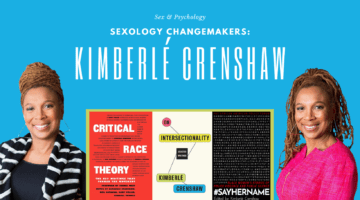The Birds And The Bees: Do Parents Give Different Sex Talks To Boys And Girls?
January 8, 2015 by Justin Lehmiller
“The birds and the bees” talk is important, but an oftentimes awkward milestone in children’s lives during which their parents explain sex. Although public opinion polls have found that most parents report having some form of this talk with their kids, we do not know all that much about the content of these talks or how they differ when given to male versus female children. A new study published in the journal Evolutionary Behavioral Sciences finds that parents seem to explain “the birds and the bees” in very different ways based upon the sex of their child and, further, that these explanations are consistent with evolutionarily evolved mating strategies.
In this study, researchers hypothesized that parents would be more likely to give sex talks aimed at guarding their child’s sexuality when that child is a girl compared to a boy. Why? The reason that humans have evolved a tendency to engage in “daughter guarding” is because, throughout our evolutionary history, daughters have faced more potential reproductive costs associated with early sexual activity than sons, including unwanted pregnancy, sexual victimization, and reputational damage.
In order to test whether parents have a tendency to engage in daughter guarding, a sample of 521 young, heterosexual adults were recruited from both Facebook and a college student subject pool. Participants completed an online survey that inquired about the nature and timing of “the birds and the bees” talk that they received.
Results revealed that 49% of men and 44% of women reported receiving a sex talk from their parents, a difference that was not statistically significant. In addition, male and female participants reported receiving their talks at about the same age (13 on average).
Although the likelihood of having a sex talk and the age at which it occurred did not differ based on gender, there were several important differences in the nature of the talks received. Specifically, daughters were more likely than sons to be given messages that promoted (1) sexual abstinence and the avoidance of premarital sex, (2) being discriminating in who you have sex with, (3) saying “no” to sex and defending against unwanted sexual advances, (4) not imitating sexual depictions in the popular media, (5) restrictions on the age at which they can start dating, and (6) rules limiting contact with members of the other sex. In contrast, one thing sons were more likely to be told than daughters was to “have fun.”
Of course, this study is limited in the sense that it only surveyed sons and daughters without also surveying their parents. Moreover, participants were asked to recall the details of a talk that took place, on average, 6.5 years ago. Also, while the results are indeed consistent with the evolutionary explanation, other explanations are possible (e.g., they could also be explained in terms of various socio-cultural influences, such as the sexual double standard).
Nonetheless, these results suggest that children appear to be given different sex talks depending upon whether they are male or female and, moreover, talks given to daughters seem designed to guard their sexuality more than talks given to sons.
Want to learn more about Sex and Psychology ? Click here for previous articles or follow the blog on Facebook (facebook.com/psychologyofsex), Twitter (@JustinLehmiller), or Reddit (reddit.com/r/psychologyofsex) to receive updates.
To learn more about this research, see: Kuhle, B. X., Melzer, D. K., Cooper, C. A., Merkle, A. J., Pepe, N. A., Ribanovic, A., … & Wettstein, T. L. (2014). The “birds and the bees” differ for boys and girls: Sex differences in the nature of sex talks. Evolutionary Behavioral Sciences.
Image Credit: iStockphoto

Dr. Justin Lehmiller
Founder & Owner of Sex and PsychologyDr. Justin Lehmiller is a social psychologist and Research Fellow at The Kinsey Institute. He runs the Sex and Psychology blog and podcast and is author of the popular book Tell Me What You Want. Dr. Lehmiller is an award-winning educator, and a prolific researcher who has published more than 50 academic works.
Read full bio >


